Housing & Landlord Issues: Know Your Rights as a Tenant in Northwestern Pennsylvania

Here at NWLS, our mission is to provide legal aid to low-income residents in Northwestern Pennsylvania. We have expanded our services with recent grants to address housing and landlord issues. Understanding your rights and responsibilities as a tenant is crucial for maintaining a stable, secure living environment.
Common Housing Issues
Evictions
An eviction is a legal process by which a landlord removes a tenant from a rental property. This process must follow specific legal procedures, including giving the tenant proper notice and obtaining a court order.
Tenant Rights
- Notice Requirements: Tenants have the right to receive a written notice before an eviction can proceed. The notice period varies depending on the reason for eviction and local laws.
- Court Hearing: Tenants have the right to a court hearing, at which they can present their case and contest the eviction.
- Legal Representation: Tenants can seek legal representation to help defend against an eviction.
Self-Help Evictions
Self-help evictions occur when a landlord attempts to force a tenant out without following the proper legal procedures. This can include actions such as changing the locks, shutting off utilities, or removing the tenant's belongings.
Tenant Rights
- Right to Remain: Tenants have the right to remain in their homes until a court order is issued.
- Restoration of Services: If a landlord shuts off utilities, tenants have the right to have those services restored.
- Legal Action: Tenants can take legal action against landlords who attempt self-help evictions, including seeking damages for any harm caused.
Habitability Issues
Habitability issues refer to problems that make a dwelling uninhabitable. Landlords are required to provide a habitable living environment, which includes functioning plumbing, heating, and freedom from pests.
Tenant Rights
- Implied Warranty of Habitability: Tenants have the right to live in a habitable environment. This means the rental property must meet basic health and safety standards.
- Requesting Repairs: Tenants have the right to request repairs in writing and expect the landlord to address them promptly.
- Withholding Rent: In some jurisdictions, tenants may have the right to withhold rent until necessary repairs are made.
- Repair and Deduct: Tenants may have the right to make repairs themselves and deduct the cost from their rent if the landlord fails to act.
Code Enforcement Violations
Code enforcement violations occur when a rental property does not meet local building or housing codes. These codes are designed to ensure the safety and habitability of rental properties.
Tenant Rights
- Reporting Violations: Tenants have the right to report code violations to local authorities.
- Inspection: Tenants have the right to request an inspection of the property by local code enforcement officials.
- Remediation: If violations are found, tenants have the right to have the landlord make necessary repairs to bring the property up to code.
Lease Violations
Lease violations happen when either the tenant or the landlord fails to adhere to the terms of the lease agreement. Common lease violations by tenants can include non-payment of rent, unauthorized pets, or subletting without permission. Landlord violations can include entering the property without proper notice or failing to make necessary repairs.
Tenant Rights
- Understanding Lease Terms: Tenants have the right to a clear and understandable lease agreement.
- Notice of Violation: Tenants have the right to receive notice of any alleged lease violations and an opportunity to correct them.
- Privacy: Tenants have the right to privacy and must receive proper notice before the landlord enters the rental unit.
- Maintenance and Repairs: Tenants have the right to expect the landlord to fulfill their maintenance and repair obligations as outlined in the lease.
Security Deposits
Security deposits are funds paid by the tenant to the landlord at the beginning of the tenancy to cover potential damages or unpaid rent. Landlords are required to return the security deposit within a specified time frame after the tenant moves out, minus any legitimate deductions for damages beyond normal wear and tear.
Tenant Rights
- Itemized List of Deductions: Tenants have the right to receive an itemized list of any deductions made from the security deposit.
- Timely Return: Tenants have the right to have their security deposit returned within the time frame specified by state law.
- Dispute Deductions: Tenants have the right to dispute any deductions they believe are unjustified.
Shared Utility Issues
Shared utility issues arise when tenants share utility meters or services with other tenants or the landlord. This can lead to disputes over utility bills and usage.
Tenant Rights
- Clear Billing: Tenants have the right to clear and accurate billing information regarding shared utilities.
- Fair Charges: Tenants have the right to be charged only for their utility usage, not for shared or common areas unless specified in the lease.
- Disclosure: Tenants have the right to be informed about how utilities are shared and billed before signing the lease.
How NWLS Helps

In-Person Meetings for Private Landlord Issues
Our team is now able to schedule in-person meetings with attorneys for clients dealing with private landlord issues, provided the case has merit. This means that if your situation warrants legal representation, you will have the opportunity to meet face-to-face with an attorney who can offer personalized legal advice and representation.
If your case does not meet the criteria for in-person representation, you will still receive valuable telephone advice from our experienced attorneys. This ensures that you are not left without guidance, even if your case does not qualify for direct representation.
Public, Section 8, and Subsidized Housing Hearings
In addition to private landlord issues, NWLS continues to handle cases involving public housing, Section 8 housing, and other subsidized housing programs. Our attorneys are well versed in the specific regulations and challenges associated with these types of housing, and we are committed to ensuring that your rights are protected.
Grants
To qualify for assistance under the housing grant, clients must meet specific eligibility criteria:
- Your income must fall at or below 125% of the federal poverty level.
- Your case must meet the specific guidelines set forth by the grant funding. This means that certain types of cases — such as class action suits, representation of incarcerated individuals, or cases involving eviction for illegal drug activity — are not eligible.
- There must be no conflict of interest that would prevent NWLS from representing you.
Our Process
Our Central Intake Unit (CIU) screeners and attorneys will assess your eligibility and case merit. Here's how the process works:
- Initial Contact: When you contact NWLS, you will speak with a CIU screener who will gather basic information about your situation.
- Eligibility Assessment: The screener will assess your income and the specifics of your case to determine if you meet the eligibility criteria.
- Merit Evaluation: If you are eligible, a CIU attorney will evaluate the merit of your case. This involves determining whether your case has a strong legal basis and falls within the scope of what we are allowed to do under the funding guidelines.
- Scheduling: If your case has merit, it will be scheduled for direct representation in one of our six offices that cover the county where you live. You will then have the opportunity to meet with an attorney in person.
- Telephone Advice: If your case does not have merit for representation, the CIU attorney will provide you with legal advice over the phone. This advice can help you understand your rights and the best steps to take in your specific situation.
Apply for Legal Aid Now
If you are facing housing issues, contact NWLS to see if you are eligible for assistance.
Call Us: (814) 452-6949 | Apply Online | Housing Law Resources
Disclaimer: This information is for general educational purposes only and does not constitute legal advice. It is essential to consult with an attorney for specific legal guidance. For more detailed information and assistance, please reach out to us - we are here to help you navigate your housing and landlord issues.
However, you will not be a client of Northwestern Legal Services unless we contact you and tell you that your case is accepted.

